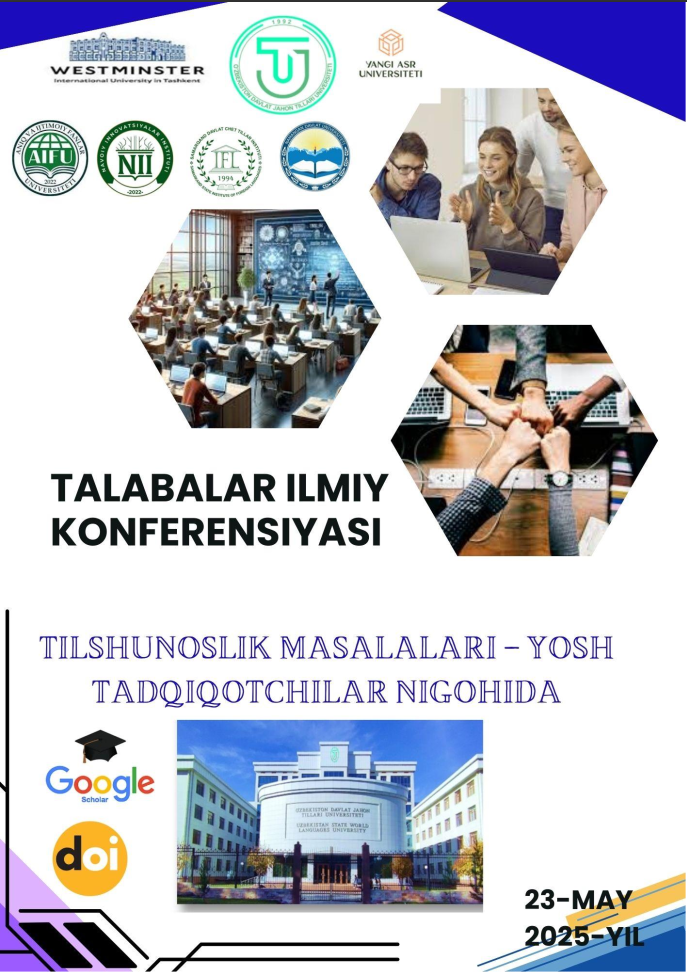THE ROLE AND EVOLUTION OF TEACHING FIELDS IN MODERN EDUCATION
https://doi.org/10.5281/zenodo.15517268
Kalit so‘zlar
Teaching fields, education systems, digital literacy, vocational training, teacher development, STEM education, emotional intelligence, inclusive education, educational reform, global education trends.Annotasiya
The teaching profession has experienced a profound transformation over the past several decades, driven by a range of global forces including technological advancement, educational policy reforms, shifting labor market demands, and broader societal changes. While traditional academic disciplines such as mathematics, language arts, and natural sciences remain foundational to educational curricula worldwide, the 21st century has seen a rapid expansion of teaching fields to encompass areas such as digital literacy, environmental education, emotional and social learning, global citizenship, and technical and vocational training. This paper offers a comprehensive analysis of the evolution and diversification of teaching fields in response to contemporary educational needs. It explores the intersection between education and socio-economic development, highlighting how innovations in technology and changes in workforce requirements have prompted a reevaluation of what knowledge and skills are essential for students today. The study also examines the role of teachers as adaptive professionals navigating an increasingly complex educational landscape marked by diverse learner needs, cultural pluralism, and systemic inequality.
Foydalanilgan adabiyotlar ro‘yhati
Alimdjanovna, K. M. (2024). ADVANTAGES OF SCAFFOLDING IN TEACHING WRITING COMPREHENSION. Eurasian Journal of Academic Research, 4(5-3), 70-72.
Darling-Hammond, L. (2020). The Flat World and Education: How America’s Commitment to Equity Will Determine Our Future. Teachers College Press.
Erdanova, Z. (2021). THE PROBLEM OF THE NORMS OF PHRASEOLOGICAL UNITS. Mental Enlightenment Scientific-Methodological Journal, 2021(1), 74-81.
Fullan, M. (2016). The New Meaning of Educational Change. Routledge.
Gulomova, R. (2022). AUTHENTIC MATERIALS AS A SOCIOLINGUISTIC APPROACH. British View, 7(1).
Mishra, P., & Koehler, M. J. (2006). Technological Pedagogical Content Knowledge: A Framework for Teacher Knowledge. Teachers College Record.
Rashidova, G. (2023). INGLIZ TILI DARSLARIDA YOZISH KO’NIKMASINI O’RGATISH JARAYONIDA ZAMONAVIY INNOVATSION TEXNOLOGIYALARDAN FOYDALANISH. Engineering problems and innovations.
Rasulova, S., & Muhtashamova, P. (2024). Innovative teaching techniques for distance education. O ‘zbekiston davlat jahon tillari universiteti konferensiyalari, 169-174.
Sultonova, M. (2024, October). Features of Critical Thinking Skills for B1 Level Learners. In Conference Proceedings: Fostering Your Research Spirit (pp. 786-790).
UNESCO. (2023). Education for Sustainable Development: A Roadmap. Paris: UNESCO Publishing.
UNICEF. (2022). Global Report on Inclusive Education. New York: UNICEF.

